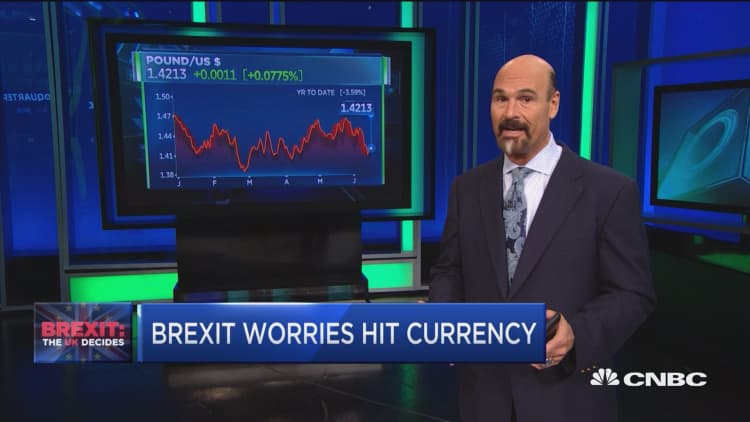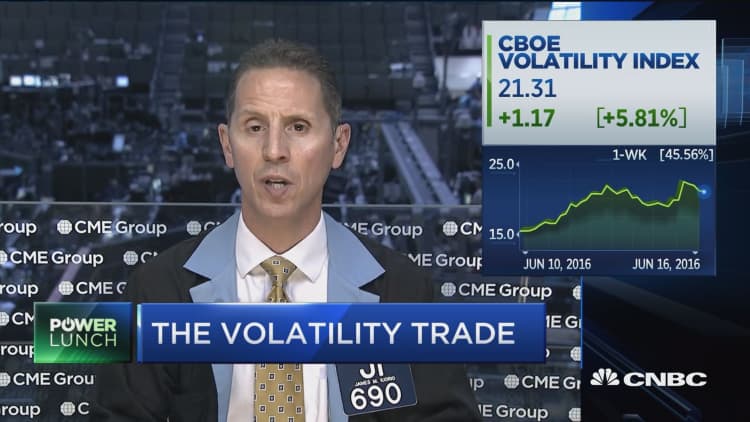
Fears over a possible Brexit have led to volatility in the currency market, but if you examine the pound's movement over recent months, all signs point to a vote by Britain to stay in the European Union, trader Jon Najarian said Thursday.
When U.K. Prime Minister David Cameron announced the referendum on the matter in February, the pound slid "rather dramatically" and broke through $1.39 to the U.S. dollar, Najarian said in an interview with CNBC's "Power Lunch."
A series of rallies followed before the currency fell again after new polls showed a majority of the British public wants to leave the EU.
According to the latest survey by Ipsos Mori, among those likely to vote, British support for leaving the bloc in the June 23 referendum has risen to 53 percent.
On Thursday, selling in the pound eased against the dollar after Cameron announced all campaigning regarding the referendum was suspended after news that Jo Cox, a Labour Party member of Parliament, died from a shooting earlier in the day.
The pound rose against the dollar to around $1.42 in late afternoon trading Thursday.
What's key is that the pound is still not as low as it was back in February, when polling showed about 70 percent of the public wanted to stay in the EU, said Najarian, a CNBC contributor.
"Based on where the currencies are, they're not going to be voting to exit next week. It will be a close vote though," he said.

Meanwhile, volatility also has been hitting the U.S. stock market.
Trader Jim Iuorio, managing director of TJM Institutional Services, believes that will be the norm until the Brexit vote.
That said, even if the U.K. decides to exit, volatility will probably come out quickly. That's because while trade agreements will have to be renegotiated, Britain does not use the euro as its currency.
"The fact that they're not a member of the common currency, it's kind of equivalent of being a social member more than being a full golf member of a country club. It's not as enormous of a deal," he told "Power Lunch."
In fact, he doesn't think the U.S. stock market should be dragged down at all on fears over the vote and should instead be transferred over to the "risk-off" list with the yen, gold and U.S. Treasurys.
"It's not really going to affect our country that much and every central bank in the world is going to throw money at the problem. It's got to end up somewhere," said Iuorio.
—CNBC's Evelyn Cheng and Reuters contributed to this report.


